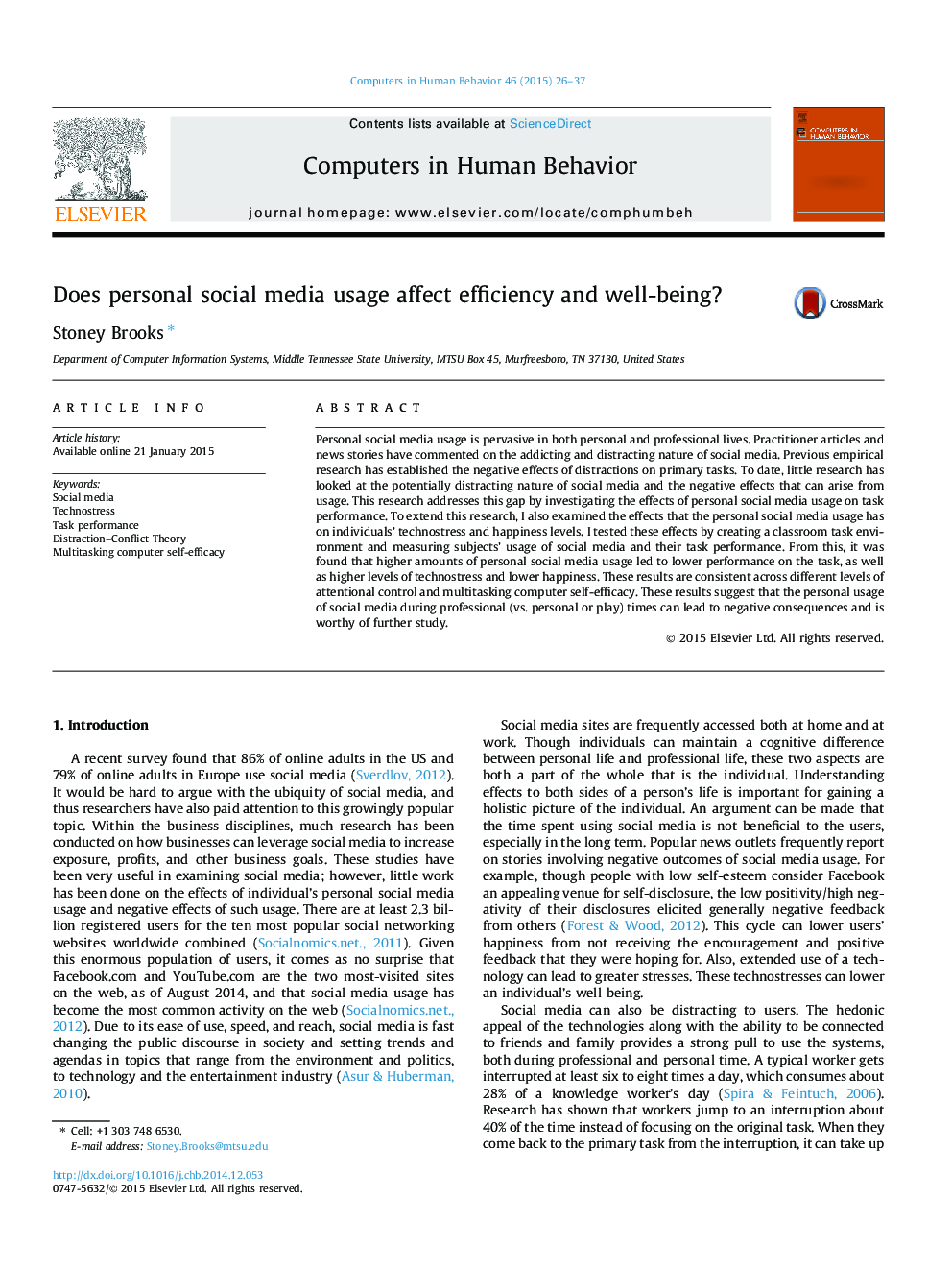| Article ID | Journal | Published Year | Pages | File Type |
|---|---|---|---|---|
| 6838487 | Computers in Human Behavior | 2015 | 12 Pages |
Abstract
Personal social media usage is pervasive in both personal and professional lives. Practitioner articles and news stories have commented on the addicting and distracting nature of social media. Previous empirical research has established the negative effects of distractions on primary tasks. To date, little research has looked at the potentially distracting nature of social media and the negative effects that can arise from usage. This research addresses this gap by investigating the effects of personal social media usage on task performance. To extend this research, I also examined the effects that the personal social media usage has on individuals' technostress and happiness levels. I tested these effects by creating a classroom task environment and measuring subjects' usage of social media and their task performance. From this, it was found that higher amounts of personal social media usage led to lower performance on the task, as well as higher levels of technostress and lower happiness. These results are consistent across different levels of attentional control and multitasking computer self-efficacy. These results suggest that the personal usage of social media during professional (vs. personal or play) times can lead to negative consequences and is worthy of further study.
Related Topics
Physical Sciences and Engineering
Computer Science
Computer Science Applications
Authors
Stoney Brooks,
